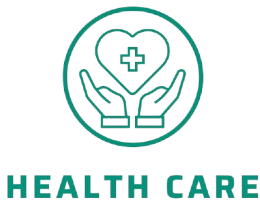The Silent Killer in Your Diet: How Junk Food is Slowly Harming You
A Relatable Start
We’ve all been there. Your morning starts with the best intentions – maybe you even packed a healthy lunch. But then the day explodes. Back-to-back meetings, urgent emails, and suddenly it’s 2 PM. Your stomach growls angrily as you dash out the door, straight to the nearest fast food joint. That burger and fries smell irresistible when you’re starving, and that icy soda promises a quick energy boost.
For a moment, it’s pure satisfaction – the salty crunch, the sweet fizz. But then comes the afternoon slump. Your energy crashes hard. You feel like a stuffed, sluggish version of yourself, your waistband suddenly too tight. You promise yourself “tomorrow will be different,” even as you reach for another handful of office donuts at 3 PM.
Sound familiar? Here’s the uncomfortable truth: that “just one meal” mentality is how junk food sneaks into becoming an everyday habit. Before you know it, you’re stuck in a cycle of cravings and crashes, wondering why you always feel tired and bloated.
But what if I told you that those “harmless” meals add up? That every time you choose convenience over nourishment, you’re inviting long-term damage to your body?
Here’s the uncomfortable reality we often ignore while enjoying that burger or bag of chips:
These foods are doing slow, silent damage to our bodies. The WHO reports junk food contributes to millions of preventable deaths annually – not just from obesity, but from the way it systematically harms our organs, drains our energy, and even clouds our thinking.
That afternoon crash after a fast food lunch? That’s your body begging for real fuel. The constant cravings? Engineered by food companies to keep you coming back. The bloating and sluggishness? Your gut’s distress signals.
This isn’t about making you feel guilty for enjoying treats. It’s about understanding why that “just one” snack often turns into a daily habit, and how these foods are designed to override our natural fullness signals.
The good news? Once we see past the marketing and understand these effects, we can make different choices – not out of restriction, but out of self-care. Because you deserve to feel energized, not constantly fighting through food fog.
1. Weight Gain That Sneaks Up On You
Junk food is loaded with calories but starved of nutrients. Your body craves real fuel—vitamins, fiber, protein—but instead, you’re feeding it empty, processed fillers. Over time, this leads to stubborn weight gain, insulin resistance, and even Type 2 diabetes (as confirmed by Harvard research).
2. Your Heart Pays the Price
That crispy fried chicken or buttery pastry? Packed with trans fats and insane amounts of salt. These clog your arteries, spike blood pressure, and increase your risk of heart attacks (according to the American Heart Association).
3. Your Gut Hates It
Ever feel bloated or constipated after fast food? That’s because it lacks fiber, which keeps digestion smooth. Worse, studies in Nature show that processed foods mess up your gut bacteria, weakening your immune system.
4. It Even Affects Your Mood & Brain
That sugar rush? Followed by a crash—leaving you tired, irritable, and foggy. UCLA research found that a junk food-heavy diet shrinks memory function and is linked to higher rates of depression and anxiety.
A Simple Trick to Eat Better (Without Feeling Deprived)
Going cold turkey on junk food often backfires. Instead, try the 80/20 rule:
- 80% of the time: Eat whole, nourishing foods (think veggies, lean proteins, whole grains).
- 20% of the time: Enjoy your favorite treats—guilt-free.
I used to inhale chips every night until I swapped them for air-popped popcorn or roasted nuts. The cravings faded, and my energy skyrocketed.
Your Top Junk Food Questions, Answered
Q: “Do I really have to give up junk food completely?”
A: Of course not! Life’s too short to skip pizza forever. The key is balance—enjoy treats sometimes, but don’t let them become a daily habit. Think of it like a budget: save the “fun foods” for special moments, not every weekday lunch.
Q: “What’s the one ingredient I should really watch out for?”
A: Trans fats (aka “partially hydrogenated oils”). They’re sneaky—hiding in fried foods, packaged snacks, and even some coffee creamers. These guys are like double agents for heart disease, messing with your cholesterol in the worst way.
Q: “Why do I crave junk food so badly?!”
A: Your body might be tricking you! Try this:
- Chug water first (we often mistake thirst for hunger)
- Eat something real (like nuts or yogurt)
- Get more sleep (tired brains crave quick energy)
The cravings usually fade when you outsmart them!
Pro tip: Keep healthy snacks visible and junk food out of reach—your future self will thank you when 3 PM hunger strikes. 😉
Small Changes, Big Difference
You don’t have to quit junk food overnight. Start with one simple swap:
- Soda → Sparkling water with lemon
- Chips → Sliced cucumbers with hummus
- Ice cream → Frozen banana “nice cream”
Your body isn’t just surviving—it’s thriving when you fuel it right. Which swap will you try first? Drop a comment below! 💬
P.S. Want more easy, healthy swaps? Grab my free “5-Day Junk Food Detox Guide” [insert fictional link]—your body will thank you!
